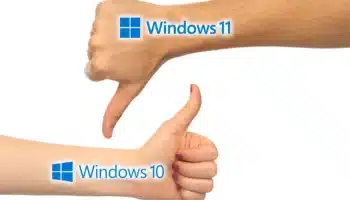Sony Drops Price of New Blu-ray Player
Sony on Monday said it is lowering the cost of its upcoming Blu-ray player to $499 USD. Although it claims the $100 price drop is due to falling production costs and growing demand, Sony's move is likely more in response to rising sales of HD DVD players.
Data indicates that player sales for HD DVD have increased by five to ten times depending on the retailer following its price drop to $299 USD. Sony had originally planned for the BDP-S300 player to retail for $599 USD.
Amp'd Mobile Files For Bankruptcy Protection
Highlighting the struggles that mobile virtual network operators face to break into the highly competitive cellular marker, Amp'd Mobile filed for Chapter 11 bankruptcy protection over the weekend.
Amp'd claims the bankruptcy was due to the fact its infrastructure could not keep up with demand, and it was "a necessary and responsible action to sustain and strengthen our momentum in the marketplace."
TechEd 2007: Xandros Becomes Second Linux Vendor to License MS IP
ORLANDO [3:45 pm ET June 4, 2007] - At TechEd 2007 in Orlando this morning, although there were few product announcements from the keynotes, Microsoft senior vice president Bob Muglia announced that Xandros has become the second Linux vendor to license Microsoft's intellectual property for use with Linux, following in Novell's footsteps.
We learned more about the deal this afternoon from the two companies involved in the deal: It is indeed a patent covenant arrangement, which the company told BetaNews is similar to the one Microsoft reached with Novell last year. "Xandros will now be able to employ Linux in their future products with the assurance that intellectual property is valued and respected, while their customers will have intellectual property peace of mind," a spokesperson for Microsoft's intellectual property team wrote to BetaNews this afternoon. "Through this agreement Xandros and Microsoft will focus on improved systems management, server interoperability, office document compatibility and patent assurance."
TechEd 2007 Preview: Now It's Developers' Turn to Make Changes
With Windows Vista already a firmly entrenched product in many homes and some businesses, and with Windows Server 2008 cruising toward a final release in the second half of this year, Microsoft may feel it's time for its many partners and developers with an interest in Windows' success to stand and deliver. The company has made many of the architectural shifts and overhauls that these partners demanded three years ago. But for the end user to appreciate the benefits, developers have to change course, too.
So in an effort to move developers along their way, Microsoft is trying a new tack for its TechEd 2007 conference next week in Orlando - the company's largest educational conference each year. Rather than overload the agenda with keynote addresses full of promises, possibilities, and definite maybes, this year only a 90-minute opening keynote address has been scheduled, by senior vice president Bob Muglia. Then the attendees will be released for a full five-day agenda of sessions and laboratories.
FCC Moves To Push for Better Cell E911
Saying current standards for cellular E911 are not enough, the Federal Communications Commission voted Thursday to push for better accuracy in pinpointing a cellular user's location.
Current standards only call for systems to be able to pinpoint a caller's location to within 300 meters for 95 percent of all calls, and within 100 meters for two-thirds of them. Under the new proposal, those distances are halved.
Radio Streamers File Emergency Stay Petition in Appeals Court
Calling the imposition of tremendously increased royalty fees on music webcasters "arbitrary and capricious," a group of organizations and companies with streaming radio interests, including the Digital Music Association, AccuRadio, and National Public Radio, filed a petition for an emergency stay before the US Court of Appeals in D.C., of the order imposing new performance royalty fees on online streaming music providers.
In their petition, the allies used formulas whose details were only provided to the Court under seal, the solutions to which overwhelm even BetaNews' own projections of the fees the SoundExchange performance rights organization could stand to attain.
Suspended LiveJournal Blogs Return
LiveJournal has decided to restore access to some of the 500 Web logs it had suspended as part of an effort to crack down on pedophilia and to "protect children."
"Well, we really screwed this one up," SixApart chairman and CEO Barak Berkowitz wrote in the company Web log Thursday. "For reasons we are still trying to figure out what was supposed to be a well-planned attempt to clean up a few journals that were violating LiveJournal's policies that protect minors turned into a total mess."
GPL 'Last Call Draft' Removes Language Threatening to Novell
After the publication yesterday of what the Free Software Foundation terms as a "last call draft" - a final version for comments and revisions by the public - of the next version of the General Public License, Novell stated on its corporate blog that it's pleased to discover that draft language it believed would threaten its Linux business has apparently been removed.
A modified paragraph in Section 11 of the latest GPLv3 draft would appear to prohibit an individual or company from being licensed to use or distribute free software if it has paid a third party for what it calls a "discriminatory license" - an agreement not to exercise some part of the GPL in exchange for the right to use material that may be patented within the free software.
ChoicePoint Settles With 44 US States
ChoicePoint said Friday that it had settled with 44 states over its loss of data on 145,000 consumers. The company is also to pay about $500,000 in fines. As part of the agreement, ChoicePoint will put in place better security to protect consumer data. The company is said to have data on just about every American consumer, and the states had argued that lax security allowed criminals to break into the company's systems.
In February of last year, the company disclosed data had been compromised in what was then called the largest case of identity theft in history. The incident spurred a federal investigation that resulted with ChoicePoint settling with the Federal Trade Commission in January 2006, and paying $15 million USD in fines.
Dell's Income Doldrums May Be Over, But Job Cuts Will Continue
If the figures from Dell Computer's last fiscal quarter hold up after a potential wave of possible corrections due to its admittedly improper accounting of backdated stock options grants, the company may not have fared all that poorly in the three-month period between the first weeks of February and May. It's not growing much as a company, but it's not shrinking either, posting slightly higher revenues ($14.6 billion, up 2.9% annually) and only slightly lower net income ($759 million, down 0.4% annually).
The good news sparked a late rally in Dell stocks near the close of trading on the NASDAQ this afternoon, gaining about two thirds of a point to $26.91/share in the last few minutes of regular trading before gaining another 5% in after-hours trading, to $28.34 by 4:30 pm.
Nokia Debuts New Middle, High End Phones
Nokia showed off three new phone models it will introduce over the next four months, including a candy bar and slide model, as well as a new phone that incorporates smoked glass into its design. The Nokia 6500 Classic is the company's thinnest phone yet at 9.5 millimeters, and is quad band and 3G capable, while a thicker slider version of the phone includes a 3.2 megapixel camera. The Classic will retail for $430 and the Slide $495, before carrier subsidies.
Also introduced was the Nokia 8600 Luna, the company's first phone to incorporate glass into the design. The phone is a slider model and incorporates stainless steel and smoked glass with features such as 3G support and a 2-megapixel camera. The Luna will retail for $940 before any subsidies, also making it one of Nokia's most expensive phones.
Could Google Gears Make 'Cookies' Obsolete?
In what appears to be a serious and genuine attempt to take the lead in the growing Asynchronous JavaScript market - which was recently joined by Microsoft - Google may be trying to invent something that has already been invented before, perhaps several times: a way to implement a local data store for Web-based and remote applications run through the browser.
But what Google seeks to accomplish with its Gears toolset, released into beta this morning, may not be the invention itself but instead something all of its predecessors have failed to achieve: the establishment of an accepted standard.
Microsoft Allowed to Argue Invalidity of Eolas Patent
Bloomberg News broke the news yesterday that Microsoft will be allowed to argue that patents held by research firm Eolas Technologies regarding the ability to embed functionality in a Web browser page are invalid, when a retrial of Eolas' long-running patent suit begins on July 9.
This ruling was passed down by the US Patent and Trademark Office, even though the Eolas patent's validity was upheld in September 2005, following Microsoft having won its appeal of the original decision earlier in March. The original decision found Microsoft's ActiveX technologies in Internet Explorer to have infringed upon Eolas' conceptual patent.
EMI, YouTube Sign Distribution Deal
Google said Thursday that it had signed a deal with EMI that allows users of its YouTube social video site to view videos and content from the label's artists, as well as use portions of the video in their own content. With the signing of the agreement with EMI, the site now holds agreements on content with all four major worldwide labels.
"We're excited to add EMI Music's stellar roster of artists' content to our site and make it available to our community," YouTube CEO and co-founder Chad Hurley said in a statement. The deal further insulates YouTube from lawsuits brought by content providers over the use of copyrighted content on its site. Recently, it has been sued by Viacom, which is looking for $1 billion in damages.
'Spam King' Behind Bars, Authorities Say
The arrest of a 27-year-old Seattle man is being hailed as a major victory in the fight against spam -- and some are saying it could lead to a noticeable decrease in the amount of spam worldwide.
"Spam is a scourge of the Internet, and Robert Soloway is one of its most prolific practitioners," US Attorney Jeffrey Sullivan said. "Our investigators dubbed him the "Spam King" because he is responsible for millions of spam emails."
Most Commented Stories
BetaNews, your source for breaking tech news, reviews, and in-depth reporting since 1998.
Regional iGaming Content
© 1998-2025 BetaNews, Inc. All Rights Reserved. About Us - Privacy Policy - Cookie Policy - Sitemap.




